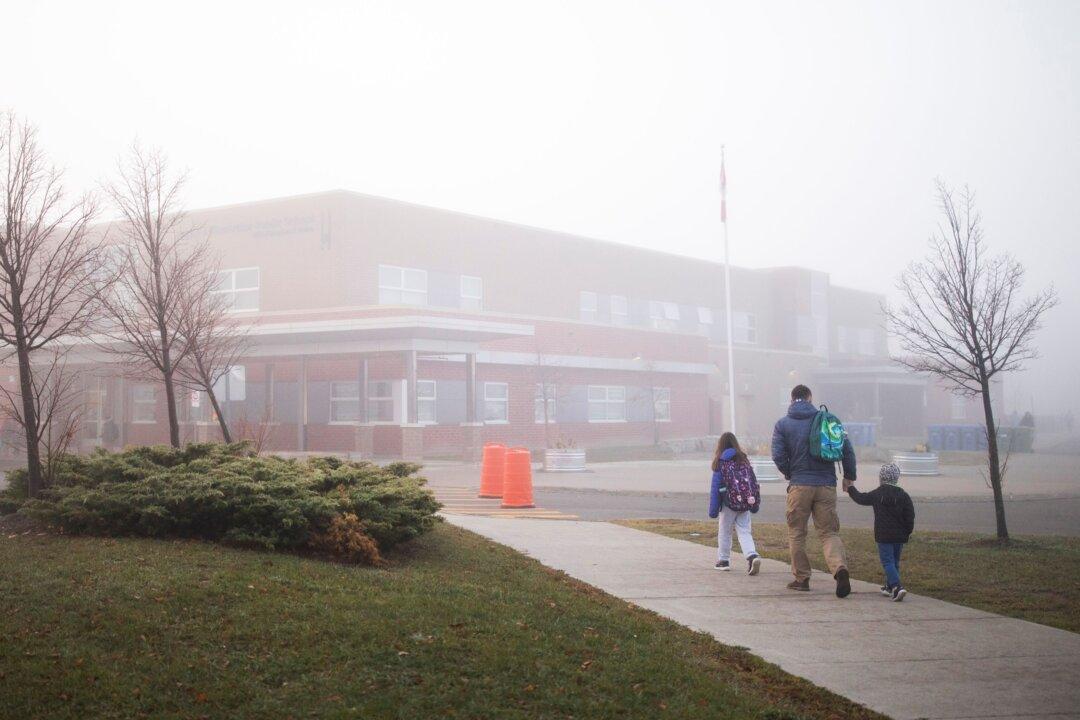
A father walks his children to school in Milton, Ont., on Nov. 4, 2022. The Canadian Press/Nick Iwanyshyn
News Analysis
When parents and others have raised the alarm over sex education in Ontario schools, many have hit the same wall: the province’s
Human Rights Code.
